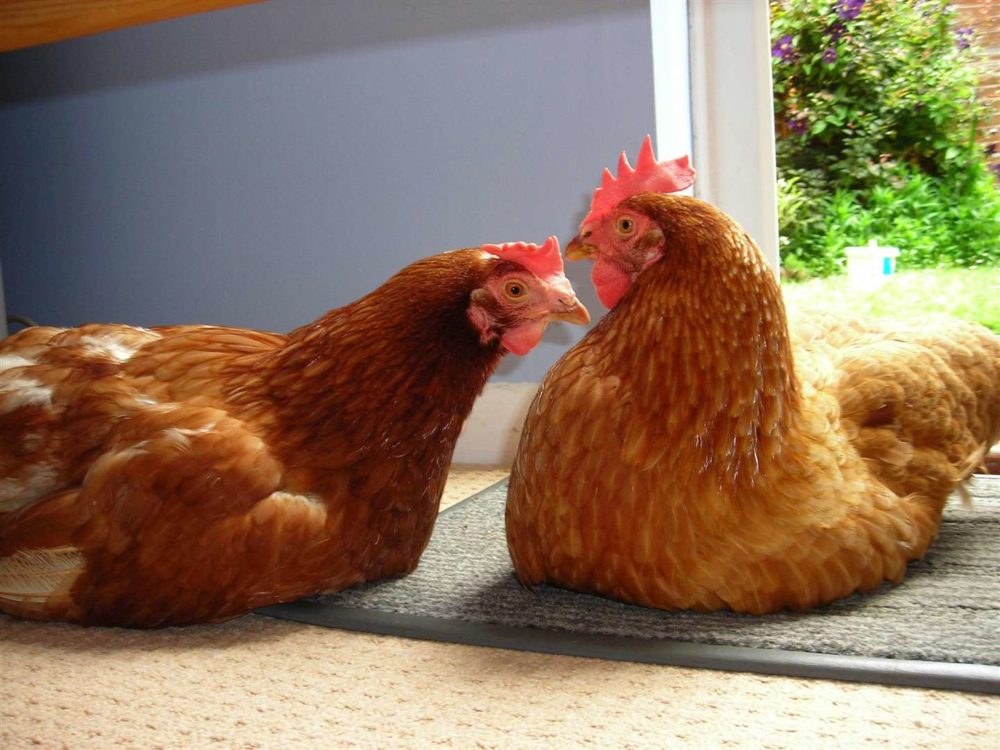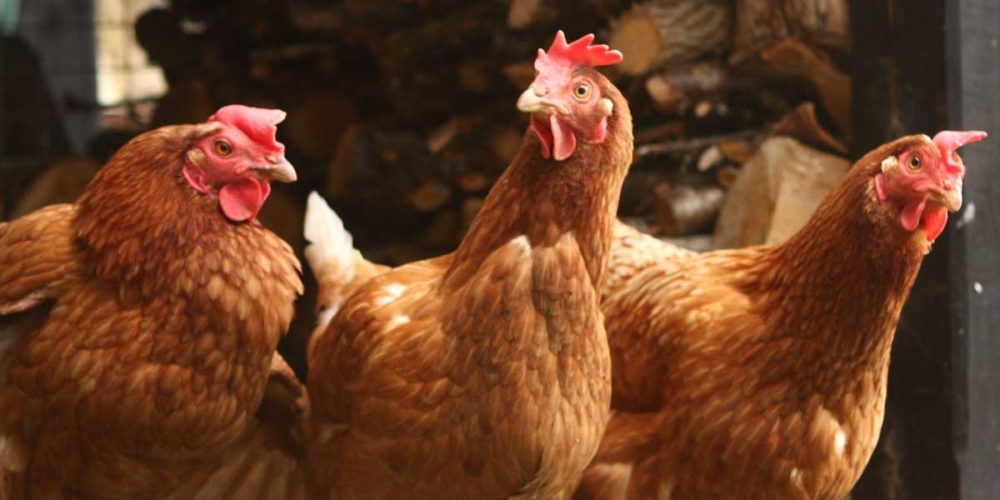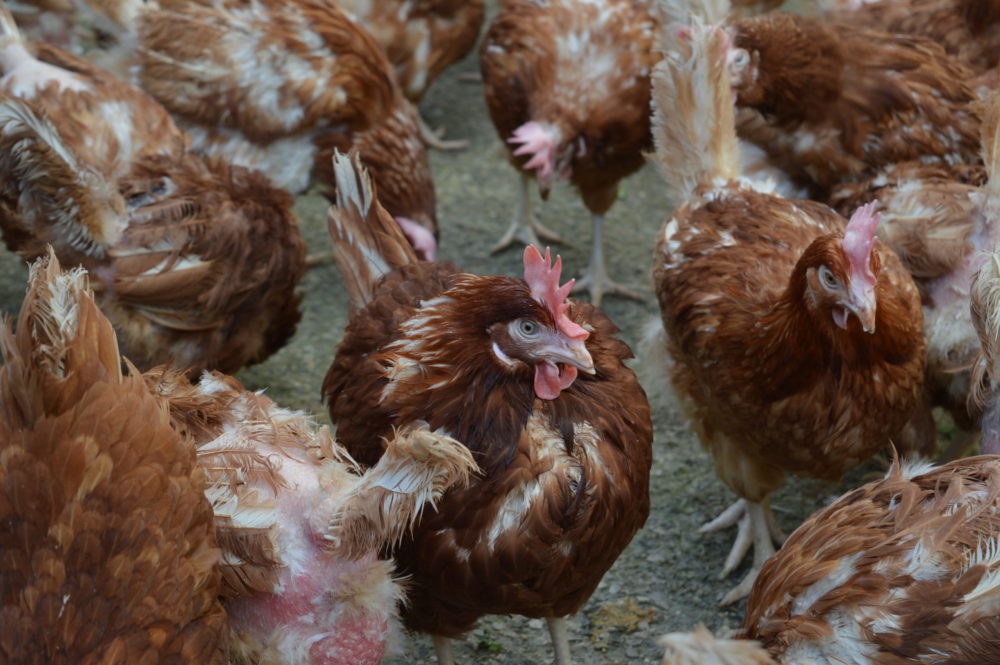Charity seeks homes in Pembrokeshire for hens destined for slaughter

Stephen Price
A charity which aims to rehome ex-laying hens to avoid them going to slaughter is hoping to find homes for 139 chickens at their next Welsh rehoming date this month.
Commercial hens start laying eggs when they are about four months old. By 18 months, their output declines and they are typically sent to slaughter.
Keen to rescue them from this fate and give them a better life, the British Hen Welfare Trust (BHWT) works to rehome chickens across the UK – with regular Welsh drop offs at Boncath, Cwmbran, Shirenewton, Swansea, Trelech (and locations in Herefordshire and Cheshire for those in mid or north Wales).
The next Welsh location for drop-offs is to be held on Sunday 19 January 2025 at Boncath, Pembrokeshire, where 139 free-range hens will be waiting for new homes.
Modest goal
The charity started in 2005 with the modest goal of rehoming 100 hens. To date, it has rehomed nearly 1 million of them.

BHWT started with a simple advert in a local newspaper: “We’ve never stood on grass, we’ve never felt the sun on our backs, we’d love a home. Can you help?”
The Devon-based charity now works with commercial egg farmers around the UK, who give up their hens once their laying capabilities start to decline.
Francesca Mapp, BHWT’s marketing consultant said: “The farmers give us their hens to rehome because they want a nicer life for them – they want them to go on and have a free-range retirement.”
The alternative would usually be to send the hens to slaughter for pet food or low-grade meat products, as they are not the same breed of chicken typically used for human consumption.
The charity distributes rescued hens to 46 pop-up, volunteer-run rehoming points across the UK, with each bird travelling no more than one hour from its farm.
Bring your garden to life
“They’re such resilient little creatures,” Francesca said. “Once they’re outside and they’re in fresh air with sunshine on their backs, they start to flourish.”
“What’s brilliant about chickens is they’re not just a pet. You actually get something in return,” says Julia Davies, an impact investor and environmental campaigner who rehomes commercial chickens.
“It’s a really great way of getting cruelty-free eggs.”
A flock of three or four hens (BHWT rehomes them in groups of three or more) will typically provide their new owner with “a couple of eggs a day for breakfast”, says Francesca.
Pet chickens will not only provide you with eggs, but they’ll also bring your garden to life – and even the most modest gardens could provide a safe, enriching environment.

“Chickens are the funniest, quirkiest, most characterful little creatures that you could imagine,” says Francesca. “I don’t think they get enough credit for what amazing pets they make.”
She says they are like “cats and dogs with feathers – because you can literally pick them up and cuddle them…and they all have individual personalities.”
“I find them really funny – they are quite daft,” adds Julia. “And there’s nothing nicer on a sunny day seeing them out in the garden making dust baths.”
Why do some have no feathers?
BHWT rehomes caged, barn and free-range hens. Caged hens are most likely to lack feather coverage – both due to pecking from other birds and the heat in their enclosures.
Although tiny battery cages have been banned in the EU, caged chickens are still highly restricted, explains Dr Lizzie Rowe, an animal welfare specialist at Reading University, UK.
“They have little ability to perform behaviours they are highly motivated to perform, such as foraging and dustbathing,” she said. This can lead to boredom and frustration, which often manifests itself in damaging behaviours such as feather pecking.
But “within a few months of being rehomed, their feathers will come back and they’ll look like show birds again,” says Francesca.

“I’ve had chickens that look like they’ve been plucked,” says Julia. “But after a couple of months, you have beautiful, healthy, fully feathered hens.”
Over 50 per cent of people who rehome from BHWT return a second, third or fourth time.
Free-range future
BHWT campaigns for a free-range future for all hens, but it comes down to supply and demand, explains Francesca.
“Sadly there is a huge demand for cheap eggs and so farmers are meeting that demand,” she explains.
By making better buying choices at the supermarket, customers can change things from the ground up.
Not all free-range eggs are created equal, however. “Even in free-range systems, thousands, or tens of thousands of birds in one place easily leads to degradation of the outdoor and indoor area and depletion of resources,” explains Lizzie.
Many large flocks of free-range hens are kept in barns with ‘pop holes’, where they can theoretically enter and exit as they choose. However, the hens in the middle of the barn may be unable to reach the exits, Francesca explains.
She says that smaller flocks mean better welfare, better husbandry and tastier eggs.
BHWT recommends that people buy the best eggs that they can afford. “The basic premise is that the more expensive eggs you buy, the better the welfare of those hens that have laid them,” says Francesca.
Register interest
To register interest in rehoming hens from Boncath, Pembrokeshire click here.
Find about drop-offs in other locations across the UK (including Cwmbran, Trelech, Swansea, and Shirenewton) here.
Support our Nation today
For the price of a cup of coffee a month you can help us create an independent, not-for-profit, national news service for the people of Wales, by the people of Wales.






Sunday dinner snatchers.
I think Joe Allen is involved with this charity. Seems a worthwhile cause to me, especially if you’re a battery-farm-reared hen.
There are no battery-cage hens in Wales or the rest of Britain.
That was banned in 2012.
This charity is a very worthwhile enterprise. The problem lies with the breed of hybrids. When hybrid layers are hatched 50% of chicks are still male and will not be very economically productive and the hens will have a shorter laying season and generally a shorter life. The industry could move towards more dual purpose breeds where the laying hens will have a longer laying life and the male chicks can be used for either breeding or meat. Also, the extra chicken manure is better for vegetable production than artificial fertilisers. Such a system would fit in with a true… Read more »
Very commendable. “Bring chickens home to roost”. Watch out for foxes now active in town and country.